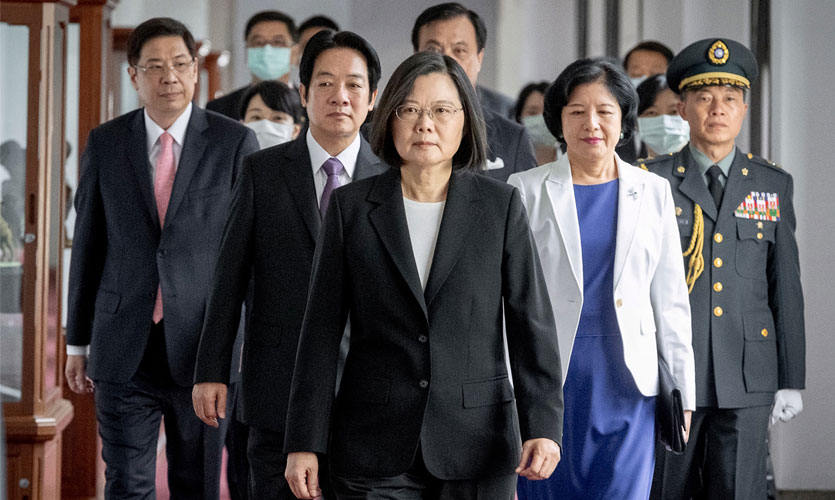Taiwan’s cyber security department head, Chien Hung-Wei, told CNN that the island is preparing for “World War III” in cyberspace owing to increasing military pressure from China. Hung-Wei said that Taiwan takes significant steps to guarantee that technical weaknesses are not exploited. According to Taiwanese authorities, about two dozen computers are responsible for securing the government networks, currently guarding 20 million to 40 million cyber attacks per month.
Despite the continuing attacks, Taiwan has been able to protect itself from China, which the Taiwanese officials claim is the source of the attacks. According to ANI, Taiwan reported hundreds of successful breaches, with just a handful categorised as “severe“.
Hung-Wei stated that the Taiwanese government primarily relies on the internet. The island’s heavily digitised vital infrastructure that includes gas, water, and power, makes it susceptible if the network’s security is inadequate. Taiwan believes that Chinese state-backed hackers were behind at least one significant malware assault last year, according to Chien.
According to Taiwan’s cybersecurity department chief, the government has documented millions of cyberattacks every month in recent years. Beijing, on the other hand, has repeatedly denied conducting cyberattacks against Taiwan and others. According to CNN, the Chinese Ministry of Foreign Affairs called the island’s claims “baseless and malicious.” Beijing also chastised Taiwanese authorities for deploying cyberattacks on the mainland as a “habitual tactic”, diverting attention from the COVID-19 breakout on the island.
Background
Although President Xi Jinping advocated for the “peaceful reunification” of Taiwan with mainland China in 2019, he refused to rule out military action. Taiwan is therefore under constant threat of military action, particularly concerning “separatist” actions as defined by the Communist Party.
When Beijing and Taiwan’s nationalist authorities recognised one China nearly 30 years ago, it established a precarious status quo that has been interpreted differently by both sides ever since. As a result of putting politics on hold, cross-strait commercial and cultural contacts grew in the years to follow.
Tsai Ing-wen, Taiwan’s current leader, has long criticised what is known as the “1992 Consensus”. She has consistently pushed Beijing to accept Taiwan’s sovereignty and people’s desires.
Taiwan’s Foreign Minister, Joseph Wu stated that Taiwan cannot accept China’s proposed unification, especially after the events in Hong Kong, which demonstrated the need of preserving Taiwan’s sovereignty to maintain its position as the world’s sole Chinese-speaking democracy. He said that the enforcement of the homeland security law in Hong Kong designed by Beijing’s ruling class was used to suppress the state’s pro-democracy movement. The broad legislation criminalises acts of insurrection, separatism, and cooperation with foreign troops, and has reportedly been used to restrict press freedom and arrest pro-democracy activists and government opponents.
The closure of Hong Kong’s main pro-democracy publication, Apple Daily, was cited by Wu as evidence of China’s rising intolerance of freedoms in the special administrative territory. Wu stated that the Taiwanese people want to protect the status quo, which includes a democratically elected government and legislature, a distinct armed group, and the power to issue visas and passports.
Wu also emphasised Taipei’s willingness to work toward attaining peace across the Taiwan Strait, and has urged Chinese officials to work together to achieve a sustainable and peaceful coexistence.
Read more: China Says No Depth In Simularity’s Analysis Of The South China Sea
Following the end of the Chinese Civil War, China and Taiwan have been separated for more than 70 years. Although the Chinese Communist Party has never controlled Taiwan, Beijing regards the island as an “inseparable component” and has vowed to use force if necessary to prevent the island from declaring independence. China’s recent military push on Taiwan has led the self-governing island to activate its air defences amid rising tensions.
As Taipei strengthens relations with the US, Beijing is believed to have disseminated military propaganda urging it to “prepare for war“. Experts have also warned of an impending cyber war.










